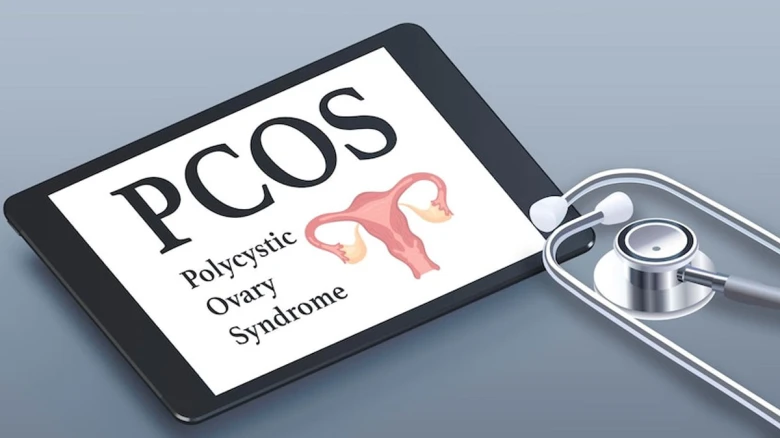Polycystic Ovary Syndrome (PCOS) is one of the most common endocrine disorders in women of reproductive age. It affects how a woman’s ovaries function, leading to irregular periods, hormonal imbalances, and difficulties with metabolism and fertility.
Despite its prevalence, PCOS remains widely misunderstood and often undiagnosed. This article covers the PCOS meaning, symptoms, causes, diagnosis methods, diet plans, and treatment options—designed for a global audience seeking clarity on this life-altering condition.
What is PCOS?
PCOS full form is Polycystic Ovary Syndrome. It is a hormonal disorder in which the ovaries may develop numerous small collections of fluid (follicles) and fail to regularly release eggs. The exact cause of PCOS is unknown, but it often involves a combination of genetic and environmental factors.
PCOS Meaning in Simple Terms:
It is a condition where women have higher-than-normal levels of male hormones (androgens), irregular menstrual cycles, and/or small cysts in the ovaries.
Causes of PCOS
While the exact cause remains uncertain, several key factors are linked to the development of PCOS:
| Contributing Factor | Description |
|---|---|
| Insulin Resistance | The body’s cells don’t respond normally to insulin, causing high insulin levels and increased androgen production |
| Hormonal Imbalance | Elevated levels of male hormones (androgens) disrupt ovulation |
| Genetics | Family history increases risk |
| Inflammation | Low-grade inflammation can stimulate polycystic ovaries to produce androgens |
PCOS symptoms can vary in intensity and may go unnoticed for years. Common signs include:
-
Irregular or missed periods
-
Excess facial or body hair (hirsutism)
-
Acne or oily skin
-
Weight gain or difficulty losing weight
-
Thinning scalp hair
-
Dark patches of skin (acanthosis nigricans)
-
Fatigue
-
Mood swings or anxiety
-
Difficulty getting pregnant (infertility)
PCOS Symptoms in Unmarried Girls
Even girls and teens who are not sexually active can develop PCOS. Warning signs to look for include:
-
Periods that come every few months or not at all
-
Sudden weight gain
-
Severe acne that doesn’t improve with standard treatments
-
Hair growth in areas like the chin, chest, or back
Risks of Untreated PCOS
If left untreated, PCOS can lead to serious long-term health complications:
-
Infertility: Due to irregular or absent ovulation
-
Type 2 Diabetes: Caused by chronic insulin resistance
-
High Blood Pressure & Heart Disease: Due to weight gain, inflammation, and hormonal imbalance
-
Endometrial Cancer: Irregular periods can cause the uterine lining to thicken abnormally
-
Depression and Anxiety: Often linked with hormonal and physical changes
Addressing PCOS early reduces these risks significantly and improves overall well-being.
PCOS Diagnosis
Diagnosis typically involves a combination of the following:
-
Medical History & Physical Exam
-
Blood Tests: To measure hormone levels, blood sugar, cholesterol, and insulin resistance
-
Ultrasound: To check for enlarged ovaries and fluid-filled follicles
There is no single test to diagnose PCOS. Most clinicians follow the Rotterdam Criteria, which require two of the following:
-
Irregular periods
-
High androgen levels (clinically or through lab tests)
-
Polycystic ovaries on ultrasound
When to See a Doctor?
If you experience any of the following symptoms, consult a specialist:
-
Irregular periods or no menstruation for more than 2–3 months
-
Excessive hair growth, acne, or hair thinning
-
Trouble losing weight despite healthy efforts
-
Difficulty getting pregnant
-
Sudden darkening of skin folds
Gynecologists are typically the first point of contact for menstrual and reproductive symptoms. An endocrinologist may be involved in managing hormonal or metabolic issues like insulin resistance.
Early consultation helps in accurate diagnosis and treatment planning.
PCOS Treatment: Is There a Cure?
There’s no permanent cure for PCOS, but the condition can be effectively managed. Treatment depends on the symptoms and whether fertility is a concern.
1. Lifestyle Changes
-
Weight loss through a balanced diet and exercise can restore ovulation
-
Reducing sugar and processed carbs can improve insulin sensitivity
2. Medications
-
Birth control pills to regulate periods and reduce androgen levels
-
Anti-androgen medications (e.g., spironolactone)
-
Metformin for insulin resistance
-
Clomiphene or letrozole to stimulate ovulation
3. Natural and Herbal Remedies
-
Spearmint tea, cinnamon, and inositol supplements may support hormonal balance (consult your doctor first)
PCOS Diet
A PCOS-friendly diet includes:
Foods to Include:
-
Leafy greens and cruciferous vegetables
-
Whole grains (quinoa, brown rice, oats)
-
Lean proteins (fish, eggs, lentils)
-
Healthy fats (avocados, olive oil, nuts)
Foods to Avoid:
-
Sugary snacks and drinks
-
Refined carbohydrates (white bread, pastries)
-
Fried and processed foods
-
Full-fat dairy (in some cases)
Meal planning and mindful eating can go a long way in improving hormonal health.
PCOS Test
Testing is done to:
-
Exclude other hormonal disorders (thyroid, prolactin issues)
-
Assess androgen, LH, FSH, and estrogen levels
-
Check insulin resistance and glucose tolerance
Your doctor may order:
-
Blood hormone panels
-
Lipid profile and HbA1c (for diabetes risk)
-
Pelvic ultrasound
Final Thoughts
PCOS can be physically and emotionally exhausting, but it is manageable with timely intervention. Early diagnosis, lifestyle changes, regular monitoring, and compassionate care make a profound difference.
Talk to your doctor, track your symptoms, and advocate for your reproductive and hormonal health.
Read More: Best Diet for Hormonal Imbalance in Women
FAQs
1. What are the first signs of PCOS?
Irregular periods, excessive facial/body hair, acne, and unexplained weight gain are common early indicators.
2. Can PCOS affect fertility?
Yes. Irregular ovulation can make it harder to conceive, but many women with PCOS can get pregnant with treatment.
3. Is PCOS curable?
It’s not curable but very manageable. Many women live full, healthy lives with proper care.
4. Does PCOS only affect overweight women?
No. Even lean women can have PCOS—though symptoms may be subtler.
5. Is it safe to take birth control for PCOS?
Yes, under medical guidance. It helps regulate cycles and lower male hormones.


